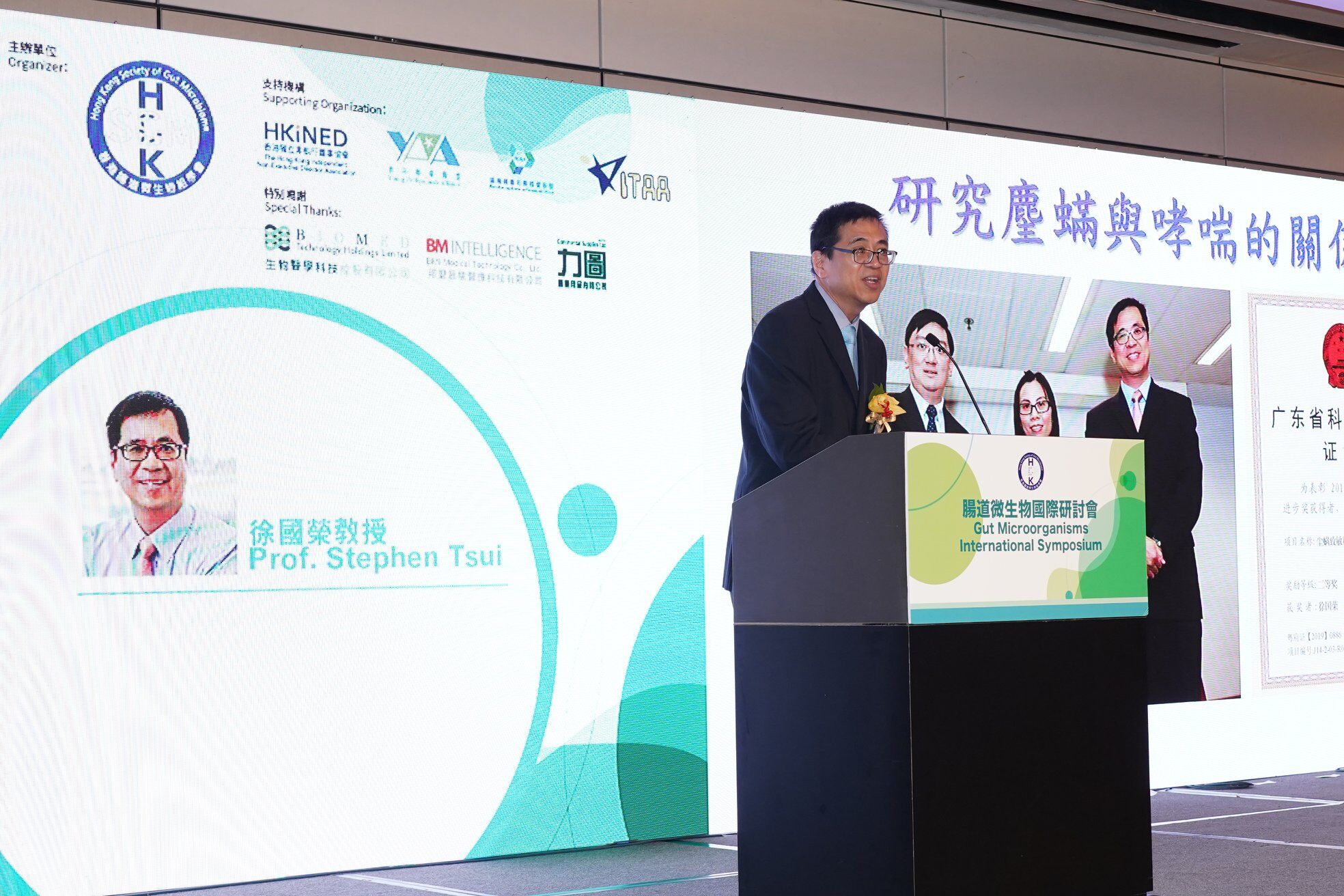At the Gut Microbiome International Symposium on Tuesday, we were pleased to invite Professor Tsui Kwok Wing Stephen from the School of Biomedical Sciences of the Chinese University of Hong Kong shared with us the relationship between the gut microbiome and mood disorders.
Professor TSUI Kwok Wing Stephen was the first SARS hero to decipher the genetic arrangement of the SARS coronavirus (SARS) during the SARS outbreak in 2003 by personally leading a research team that worked 24 hours a day for 14 days. In 2014, he led a team at CUHK Medical School to be the first in the world to decipher the dust mite genome, making a major breakthrough in the field of allergen
In this international symposium, autism and depression are both associated with the strain and diversity of gut microbes


Recent Comments